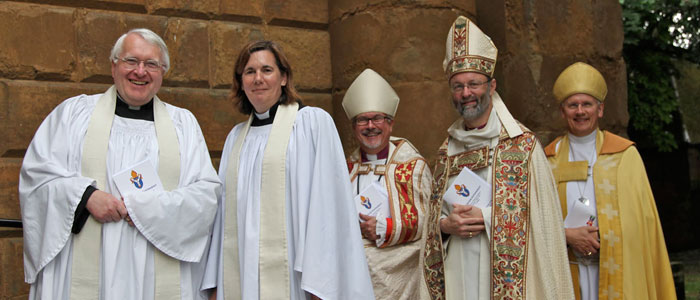Fewer than one in 50 large churches led by a woman priest

Fewer than one in 50 of England's largest churches are led by women and fewer than a quarter of full-time clergy are women, according to latest figures released by campaigners for women's ordination.
In spite of the consecration of seven women bishops in the space of a year, there is still work to be done in the Church of England, according to Women and the Church. Many of the larger churches, where the proportion of ordained women is low, are from the evangelical wing or conservative evangelical wing of the Church.
Out of nearly 13,000 parishes, more than 900 did not accept fully the minstry of women in 2012, the latest year for which figures are available, the campaigning group's latest report reveals.
The figures show that women accounted for 23 per cent of full-time parochial clergy and just 11 per cent of senior clergy, even though rates of ordination are roughly equal between men and women.
Women and the Church said it has "relished" the opportunity to return to its core task of working for gender justice, now that members are "liberated from working on the legislation for women in the episcopate".
"While overall rates of ordination are roughly equally split between men and women, why are fewer than a quarter of those seeking ordination under the age of thirty female?" the group asked. "Why are fewer than 2 per cent of leaders of larger churches female?"
Out of a total of 3677 ordained women, nearly half were in full time stipendiary posts.
Two women have been consecrated diocesan bishops and been fast-tracked into the House of Lords: Bishop of Gloucester Rachel Treweek and Bishop of Newcastle Christine Hardman.
The women consecrated as suffragans are Bishop of Stockport Libby Lane, Bishop of Hull Alison White, Bishop of Crediton Sarah Mullally, Bishop of Taunton Ruth Worsley and Bishop of Aston Anne Hollinghurst.
In addition, Karen Gorham is to be consecrated as Bishop of Sherborne later this month.
In the same period two male diocesan bishops and nine male suffragan or area bishops were consecrated.
"WATCH is delighted that so many women have been appointed as bishops in such a short space of time. The consecration services were occasions of great rejoicing, celebrated by the wider world as well as the church," a spokeswoman said.
However, she added: "While WATCH is overjoyed at the progress that the Church of England has made over the last few years, particularly with regards to the enabling and appointing of women as bishops, we are aware that there is still much to do."
Hilary Cotton, Chair of WATCH, said: "The headlines are good: seven women appointed as bishops, and a gathering sense that this is normal. But the Church of England has not now 'done women'. Those who say such things are too quick to stifle God's spirit of renewal and transformation. Women have carried the faith across much of the Church of England for decades: if we listen and listen again, I wonder what wisdom they can offer to prepare the church of the future?"











